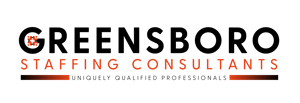Impact of SCOTUS Ruling on EEOC & Supplier Diversity Programs
The impact of affirmative action policies has been far-reaching, extending well beyond the realms of education and employment, and playing a pivotal role in fostering diversity and inclusion. One notable consequence of the Supreme Court's recent decisions to distance itself from affirmative action is the potential ripple effect it could have on supplier diversity programs and the Equal Employment Opportunity Commission (EEOC). In this article, we will explore the intricate relationship between the Supreme Court's stance on affirmative action and the implications it holds for these vital components.
Supplier Diversity and Its Significance
Supplier diversity programs are an essential component of corporate and governmental efforts to promote economic equality. These programs encourage organizations to source goods and services from businesses owned by individuals from traditionally disadvantaged groups, such as minority-owned, women-owned, veteran-owned, and LGBTQ+-owned enterprises. By diversifying their supplier base, companies and government agencies not only stimulate economic growth within these communities but also foster innovation and competition.
Implications for Supplier Diversity
The Supreme Court's shift away from affirmative action in education has raised concerns about its potential impact on supplier diversity programs. While supplier diversity initiatives primarily operate in the business sector rather than in education, there are parallels in the principles of promoting diversity and leveling the economic playing field.
Legal Precedent: The Court's decisions on affirmative action set legal precedents that may influence the future of supplier diversity programs. If the Court continues to restrict the use of affirmative action in education and employment, it could lead to similar challenges to supplier diversity programs.
Economic Impact: Supplier diversity programs have been instrumental in fostering economic growth within historically marginalized communities. A retreat from these initiatives could hinder economic progress for minority-owned and other underrepresented businesses.
Implication on EEOC
The Supreme Court's decision on affirmative action can have an impact on the Equal Employment Opportunity Commission (EEOC). The EEOC is responsible for enforcing federal laws that prohibit discrimination in employment based on various protected characteristics, including race. Affirmative action policies and programs aim to promote diversity and address historical disadvantages faced by certain groups.
With the Supreme Court's decision, which turns away from decades of precedent, the efforts of some colleges and universities to promote diversity through affirmative action may be hampered. This ruling may have implications for EEOC's enforcement of anti-discrimination laws in the context of employment.
The implications for the EEOC will be contingent upon the interpretation and application of this decision in future cases. Employers and organizations should carefully assess these developments and assess their diversity, equity, and inclusion (DEI) initiatives in light of the Supreme Court's ruling.
GCS's Commitment
At Greensboro Staffing Consultants, we firmly believe that a diverse workforce fosters innovation, creativity, and better decision-making. We embrace the differences that each individual brings to our organization and recognize that inclusive practices create a stronger and more vibrant work environment for everyone.
While the recent SCOTUS ruling may have implications for certain affirmative action programs, our dedication to promoting diversity, equity, and inclusion remains resolute. We firmly stand by our existing policies and initiatives that champion equal opportunities for all individuals, regardless of their race, gender, ethnicity, sexual orientation, or any other protected characteristic.
Our commitment extends beyond mere compliance with legal requirements; it is embedded in the very fabric of our corporate culture. We will continue to invest in diversity training and education programs, ensuring that our employees have the necessary tools and resources to foster an inclusive workplace. We will also continue to seek out partnerships with diverse suppliers, supporting supplier diversity programs that contribute to the economic growth of underrepresented communities.
Furthermore, we understand that this is an ongoing journey, and we are committed to constantly evaluating and improving our diversity, equity, and inclusion efforts. By fostering a culture of empathy, respect, and inclusion, we aim to create an environment where every individual feels valued, supported, and empowered to succeed.


